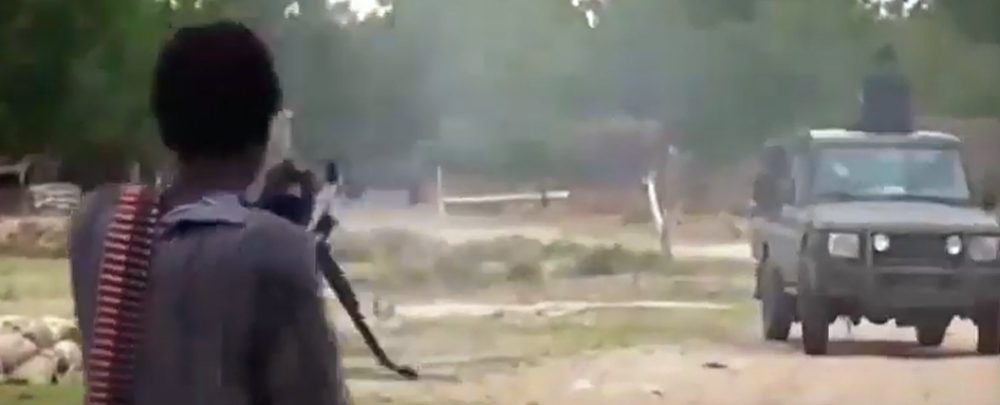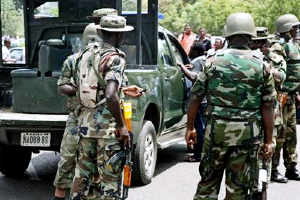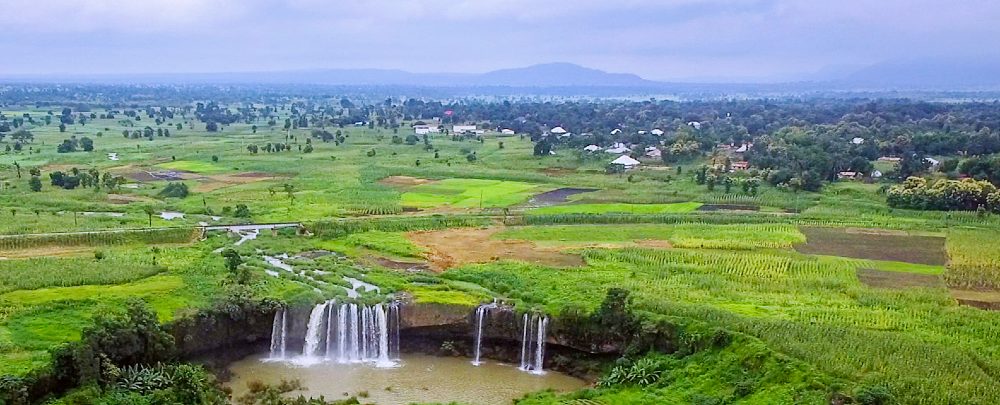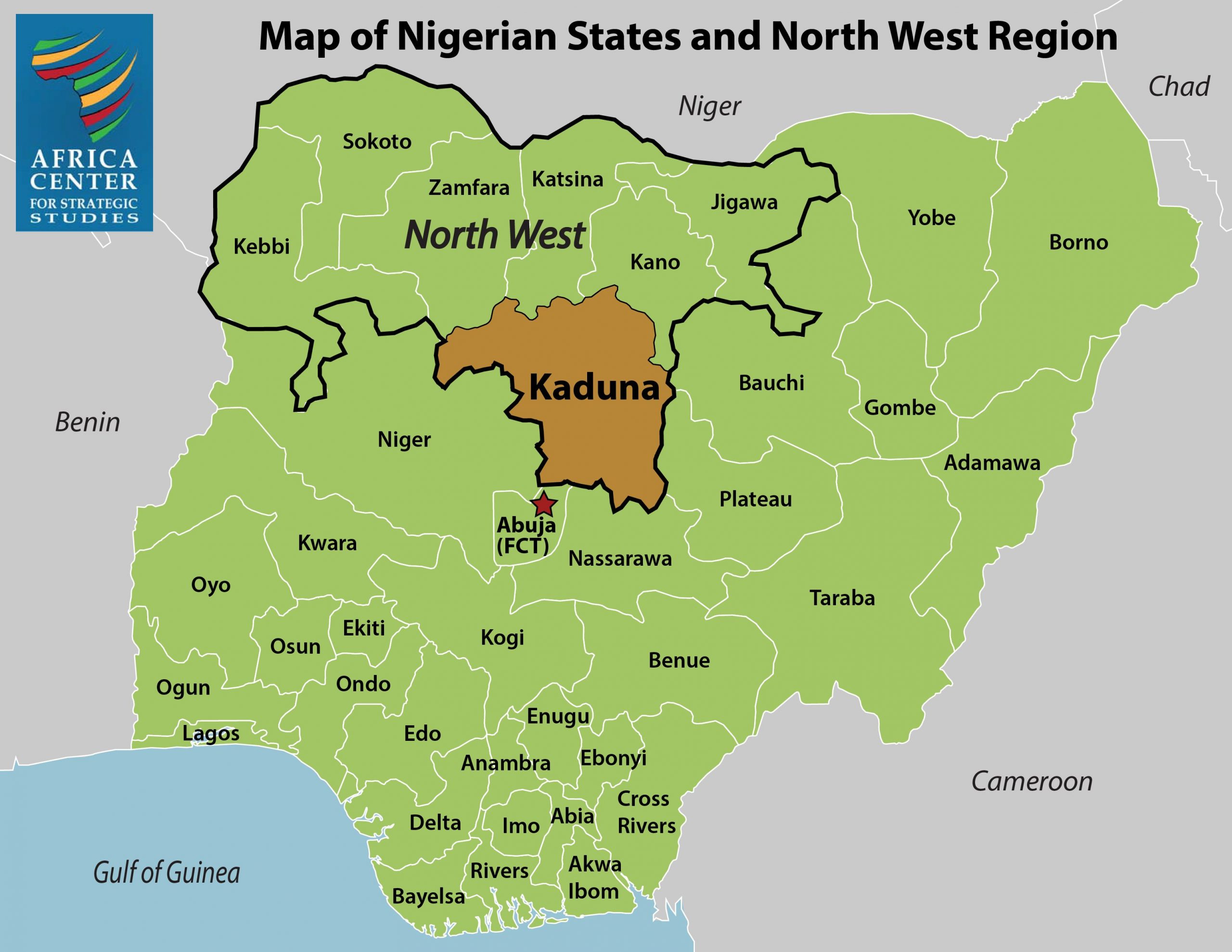
(Photo: Kaftan TV)
Kaduna State in North West Nigeria has experienced a near tripling of violent incidents involving armed groups in the past year. According to the Armed Conflict Location and Event Data Project, the 220 violent events have resulted in nearly a thousand fatalities. Moreover, there have been roughly 400 persons abducted for ransom and hundreds of communities destroyed causing the displacement of more than 50,000 people. Over the last year, Kaduna has recorded the highest number of episodes of political violence and fatalities in northern Nigeria, save Borno State—the epicenter of the Boko Haram insurgency.
Kaduna’s security crisis revolves around three different but overlapping threats. The first relates to the farmer-herder conflict that involves growing tensions over access to land and its use between communities. The second threat comes from armed gangs engaged in criminal activities, including kidnapping for ransom, arms dealing, cattle rustling, and highway robbery. A similar spike from criminal gangs has afflicted neighboring states, including Katsina where over 300 schoolboys were kidnapped and later freed in December 2020. The final threat is from violent extremism. This threat reemerged in 2020 when Ansaru, a militant Islamist group thought to be defunct, carried out an elaborate ambush, followed by a series of other attacks.
In response to Kaduna’s deteriorating security, the Nigerian government has established a special Joint Military Task Force under the mandate of Operation Accord. These security forces have engaged in a military response targeting armed groups operating in the state with some success. Yet, the continued increase of casualties and growing instability in Kaduna suggest that the tactical gains made against these groups are insufficient to restore stability and protect communities.
The failure to differentiate between and develop appropriate local responses to each of the threats driving insecurity in Kaduna risks further exacerbating this escalating crisis. Should Kaduna follow a similar trajectory to the fight against Boko Haram in Borno in North East Nigeria, it will have implications for all of North West Nigeria.
Understanding Kaduna’s Destabilizing Threats
Located just north of the Federal Capital Territory of Abuja, Kaduna State is Nigeria’s fourth most populous state with a population of 12 million people. It is the political headquarters of Nigeria’s North West region, as well as its center of commercial and industrial activities. With its northern population largely comprising Hausa-Fulani Muslims and its southern population mostly ethnically diverse Christians, Kaduna is not only geographically central but it also straddles Nigeria’s ethnic and religious divides. Kaduna’s centrality makes addressing its security challenges all the more imperative.
Farmer-Herder Conflict. The intensifying farmer-herder conflict in Kaduna can be traced to an expansion of primarily pastoralist militia groups and a proliferation of small arms in North West Nigeria. Attacks from pastoralist militias seeking grazing pastures for their herds have provoked reprisal attacks by community vigilante groups seeking to protect their farms, leading to further retaliation by the militias. This cycle of conflict has accelerated as pastureland has become scarcer due to population pressures and environmental degradation across northern Nigeria. As herders search farther afield for grazing land, farmers and their settlements are also expanding into new areas to sow their crops. This dual expansion has rapidly increased competition over shrinking land resources in Kaduna State.
Both sides in Kaduna’s intercommunal farmer-herder clashes increasingly use small arms smuggled into North West Nigeria by gun importers who sell and distribute them through illicit markets. The relative ease by which weapons are accessed has encouraged both farmers and herders to arm themselves, deepening the cycle of violence in Kaduna.
“The combination of a limited security presence and a 40 percent unemployment rate facilitates recruitment by criminal groups.”
Criminal Gangs. Organized criminal gangs have exploited the absence of a robust security presence by ambushing travelers on highways, abducting persons for ransom, rustling cattle from pastoralists, and imposing fines and taxes in the form of “harvest fees” on local farmers. These activities further exacerbate tensions between farmers and herders, which the gangs aggravate through the buying and selling of weapons on black markets that they control. Military operations in 2016 and early 2017 expelled some criminal groups operating in Kaduna. However, these campaigns were not sustained long enough to hold the territory. This enabled the criminal gangs to reorganize and return.
The combination of a limited security presence and a 40 percent unemployment rate in Kaduna State (the highest in northern Nigeria) facilitates recruitment by criminal groups. With nearly 44 percent of residents living below the national poverty line, Kaduna’s poverty headcount ratio is three times higher than Anambra’s in South East Nigeria and ten times higher than in Lagos.
Ansaru’s Reemergence. Following 7 years of inactivity, the militant Islamist group, Ansaru, staged a complex ambush in January 2020 targeting the convoy of the Emir of Potiskum and killing dozens of Nigerian soldiers. Ansaru has since claimed several attacks that have occurred primarily in northern Kaduna. However, distinguishing these attacks from those of other criminal groups has proved to be challenging. Ansaru’s resurgence appears linked to the group’s ability to tap grievances stemming from Kaduna’s worsening insecurity and socioeconomic conditions. Ansaru’s ideological campaign casts democratic rule as corrupt and incompatible with Islam, while offering weapons and economic opportunities to recruit members. The extremist group appears to have had particular success recruiting among Fulani. Efforts of the group to expand from Kaduna into neighboring states and its ability to target Nigerian soldiers underscore the broader security threat Ansaru poses to the region.
Assessing the Effectiveness of Operation Accord

Troops of Operation Accord (Photo: screen capture/Jasmine Opperman)
When faced with complex domestic security threats, Nigerian government authorities have established Joint Task Forces (JTFs) integrating military and other state security agencies. Established in Kaduna in June 2020, Operation Accord is an example of a JTF that brought together national and state forces. Specifically, state police and local intelligence capabilities have collaborated with Air Force intelligence, reconnaissance, and surveillance assets to support the Army’s clearance operations and ambush patrols. The local intelligence and air support for ground operations have helped to navigate the difficult terrain that characterizes Kaduna’s outlying areas.
Through these efforts, Operation Accord has experienced some notable successes. Security forces have launched ground and air offensives based on intelligence received from local communities. This has resulted in the arrests and killings of cattle rustlers, arms dealers, and gang members. It has also led to the destruction of militant camps and bases, including at least one of Ansaru’s. These security operations have rescued kidnapped persons and recovered illegal munitions from criminal gangs and pastoralist militias.
Despite its successes, Operation Accord has been plagued by operational shortfalls and a narrow approach that have hindered its ability to curb the growing insecurity in Kaduna and restore safety, particularly for rural communities. These shortcomings can be broadly categorized as follows:
Unidimensional Strategy. Operation Accord’s strategy has relied on force to address Kaduna’s complex security environment without considering the multilayered nature of the threats. Instead of developing the local means to mitigate the specific threats and sustain a population-centric security presence, federal security forces have, at times, employed a heavy-handed and indiscriminate approach. Although these operations have been relatively successful by military standards, they have not resulted in enduring success. Over the last 5 years, the Kaduna State government has spent about N16 billion ($41.4 million) supporting various security agencies with funding and logistics. However, these efforts have failed to incorporate a longer-term strategy that develops locally based security forces capable of preventing the return of criminal gangs and extremist groups.
“Operation Accord’s strategy has relied on force without considering the multilayered nature of the threats.”
The tunnel-vision focus on a military response has resulted in less funding for local initiatives such as the Kaduna State Peace Commission (KAPECOM) that offer avenues for mitigating Kaduna’s security crisis. In dealing with the farmer-herder conflict, for instance, KAPECOM has proposed several programs that promote tolerance and the peaceful resolution of intercommunal conflict. These projects foster cooperation and dialogue among local stakeholders, helping to elevate community concerns such as access to shrinking land resources and deteriorating socioeconomic conditions before community members turn to violence. Such forms of dialogue and engagement, likewise, aim to reduce criminal activities and militant Islamist recruitment.
Poor Trust with Local Community. Operation Accord has also been hindered by security breaches and a lack of trust between troops and some local communities. Consequently, Operation Accord commanders offer limited information to the public regarding their activities to reduce security leakages. This, in turn, inhibits community cooperation with local intelligence. In some cases where community members have shared information, security forces have allegedly been slow or failed to respond, causing local communities to view security forces with even greater suspicion. Such tensions are exacerbating Kaduna’s security crisis.
Lack of Troops and Equipment. Despite additional troops and resources deployed to Kaduna, Operation Accord continues to suffer from insufficient personnel and inadequate equipment to respond promptly to attacks by armed groups. Armed pastoralists and criminal gangs move deftly through the challenging landscape using motorbikes. Security forces under Operation Accord, however, lack the all-terrain vehicles and motorcycles needed to patrol the otherwise impassable harsh terrain. More readily available transport helicopters to deploy troops rapidly to remote locations are also needed. These constraints on mobility, especially in accessing more remote communities, have been a weakness of Operation Accord, at times resulting in slow responses. Consequently, community and religious leaders have continued to decry the limited security force presence in parts of Kaduna State.
Developing local security forces that can sustain a presence after military operations could mitigate the need to redeploy Nigeria’s already thinly stretched armed forces back to the same areas. This would require a broader strategy with a local community focus, however.
Adapting the Strategic Vision of Operation Accord
The security challenges faced in Kaduna are multifaceted. Security efforts undertaken by Operation Accord need to be incorporated within a holistic strategy that recognizes this diversity of threats propelled by a variety of drivers. An initial point of course correction, therefore, would be to map out the distinct militia groups, criminal gangs, and militant Islamist threats—and customize security responses to each accordingly.
Mitigating farmer-herder violence, for example, will involve less of a military response and more efforts to expand dialogue and reconciliation. Some recommendations for doing so have been already developed by KAPECOM. Such engagements would also earn the government goodwill within local communities and demonstrate that the government is serious about resolving these tensions.
Parallel initiatives are needed to stimulate job creation. Reducing the predatory behavior of criminal gangs intimidating and extorting both pastoralists and farmers, naturally, would also have a major and direct economic benefit on the region.

Matsirga waterfall and surrounding farmland in Kaduna State. (Photo: Hamza Shaibu)
Operation Accord’s military successes are making a difference in improving security for Kaduna, but more needs to be done to sustain these security gains. Key limitations revolve around maintaining a sufficient security presence to hold territory, accessing equipment that can enhance mobility, and strengthening trust with local communities.
Establishing local forces to hold territory taken back from criminal and extremist groups can begin to fill this gap. This would also enable Operation Accord to focus its limited military capabilities on confronting the militant, criminal, and extremist groups. To do so, Operation Accord will need to strengthen its expeditionary capacity to sustain pressure on militants who often move in small numbers through rugged terrain.
Federal and state officials can also expand Operation Accord’s scope to develop a people-centered security strategy aimed at reestablishing trust with local communities. Creating formal early warning and response mechanisms that integrate communities into a larger security network will better protect these communities. This, in turn, will foster and rebuild confidence and trust in state security forces.
A useful priority in this effort will be to identify trusted local leaders as “anchor points” or community liaisons and then improve their capacity to gather intelligence on impending attacks. This would facilitate grassroots policing supported by local personnel. Such a strategy, however, depends crucially on close and continued collaboration with military support locations, something that has been lacking in Kaduna State during Operation Accord.
Building holistically on Operation Accord’s accomplishments can help sustain these gains, while strengthening the ability of government and local community leaders to minimize further recruitment into criminal gangs and Ansaru. A more broad-based strategy, furthermore, can strengthen government cooperation with local communities—the ultimate key to sustainable security.
Olajumoke (Jumo) Ayandele is a Research Consultant at the Armed Conflict Location Event Data Project (ACLED). Her research focuses on the dynamic intersections between African conflicts, human development, and political stability. She holds a Ph.D. in Global Affairs, with a specialization in Human Security from Rutgers University.
Additional Resources
- Africa Center for Strategic Studies, “Boko Haram and Islamic State in West Africa Target Nigeria’s Highways,” Infographic, December 13, 2020.
- International Crisis Group, “Violence in Nigeria’s North West: Rolling Back the Mayhem,” Report 288, May 18, 2020.
- Africa Center for Strategic Studies, “Mitigating Farmer-Herder Violence in Mali,” Spotlight, August 8, 2019.
- Africa Center for Strategic Studies, “Security Priorities for the New Nigerian Government,” Spotlight, February 25, 2019.
- Leena Koni Hoffmann, “Violence in Southern Kaduna Threatens to Undermine Nigeria’s Democratic Stability,” Chatham House, February 15, 2017.
- Michael Sodipo, “Mitigating Radicalism in Northern Nigeria,” Africa Security Brief No. 26, Africa Center for Strategic Studies, August 2013.
- Chris Kwaja, “Nigeria’s Pernicious Drivers of Ethno-Religious Conflict,” Africa Security Brief No. 14, Africa Center for Strategic Studies, July 2011.
More on: Countering Violent Extremism Environment and Security Identity Conflict Nigeria


